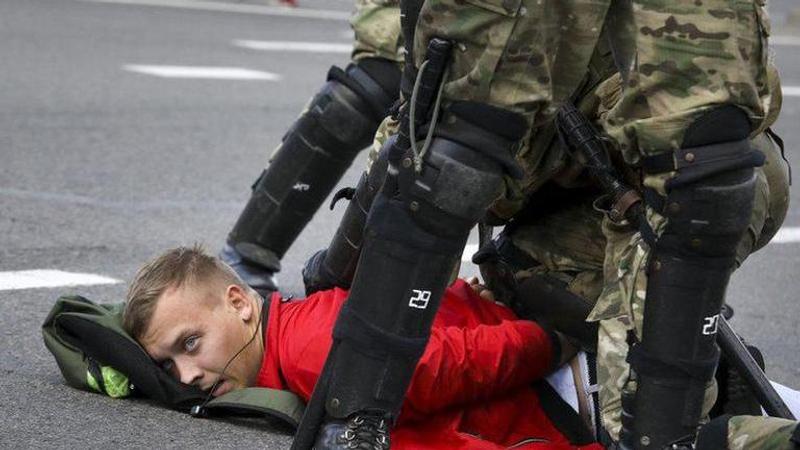Published 19:44 IST, September 18th 2020
UN condemns human rights violations in Belarus
The UN human rights chief blasted Belarus during a debate Friday for alleged rights violations by Belarusian authorities under President Alexander Lukashenko.

The UN human rights chief blasted Belarus during a debate Friday for alleged rights violations by Belarusian authorities under President Alexander Lukashenko.
"We are witnessing thousands of arrests, hundreds of reports of torture and other ill treatment, including sexual violence and the reported torture of children," UN human rights chief Michelle Bachelet said in remarks delivered by her deputy, referring to a police crackdown in Belarus on post-election protests as well as alleged actions from a decade ago.
"Armed police and security personnel are being deployed in a near systematic pattern of unnecessary or excessive use of force against largely peaceful demonstrators," she added.
Svitalana Tsikhanauskaya, a presidential candidate in the election from the opposition who has since fled to Lithuania over fears for her safety, addressed the 47-member-nation council from Lithuania in a video recording.
"The scope and the brutality of the extensive force used by the regime is in clear violation of all international norms and the universal declaration of human rights, adopted by the United Nations and Belarus as its founding member," she said.
"We, the democratic majority of Belarusians, have repeatedly expressed our commitment to the rule of law, to democratic values and to peaceful dialogue. I once again emphasize our willingness to talk with the authorities and look for a peaceful solution to the crisis that has affected our nation," she added.
In a dramatic conflict at the normally staid Human Rights Council, Belarus' ambassador, Yury Ambrazevich, took the floor to insist that allowing U.N. human rights advocates and other speakers to address the council violated the rules, arguing that only national envoys should be allowed to speak. The council president overrode the objections.
In his response, Ambrazevich said his government "rejects any such unfounded allegations that undermine the elections which were a reflection of the sovereign right of the people to make their own choice."
"We see the use of alternative assessments of reality at international fora as an intervention in our domestic affairs," he added.
The debate, during which several European Union countries spoke out in favor of the speakers and decried rights violations in Belarus, came as the 47-member-nation council prepared to vote on a resolution presented by Germany that raises concerns about torture, "arbitrary deprivations of life," and sexual and gender-based violence linked to the Aug. 9 presidential election.
The resolution also cited alleged intimidation, harassment and detention of opponents of Lukashenko's government before and after the election.
The autocratic Lukashenko, who has ruled the ex-Soviet republic for 26 years, was declared the winner, but opposition activists have challenged the election as rigged.
The European Union and the U.S. government have called the vote neither free nor fair and urged the government to enter a dialogue with the opposition as post-election protests continue.
The German resolution wants Bachelet to look into recent violations and report back to the council by year-end. That would entail a relatively fast-track response for the often deliberate and slow-moving council.
A resolution setting up the urgent debate was adopted Monday on a 25-2 vote with 20 abstentions. Many European nations voted in favor and many African nations abstained.
Updated 19:44 IST, September 18th 2020




